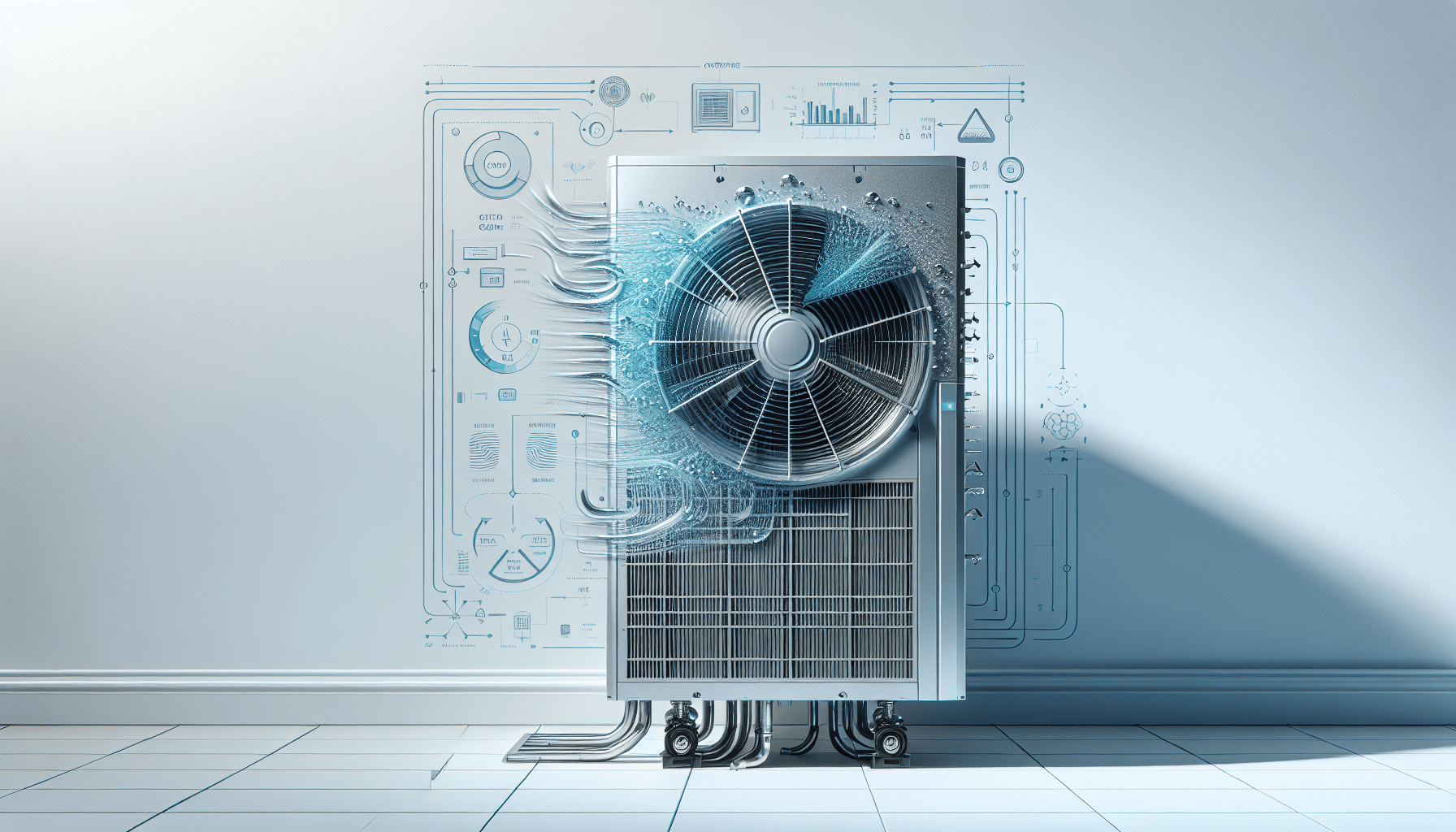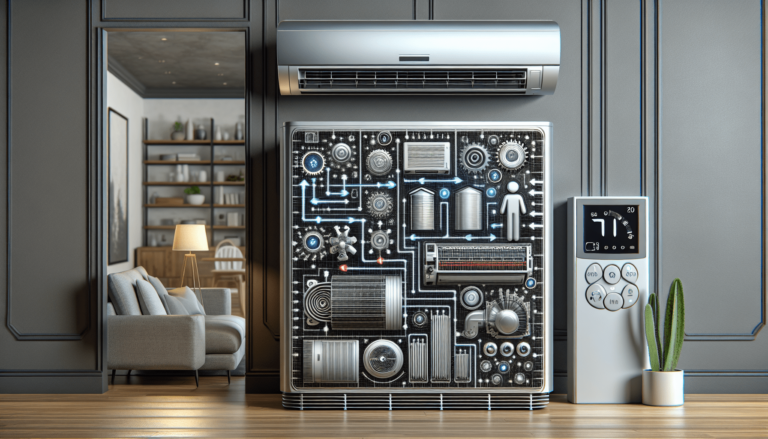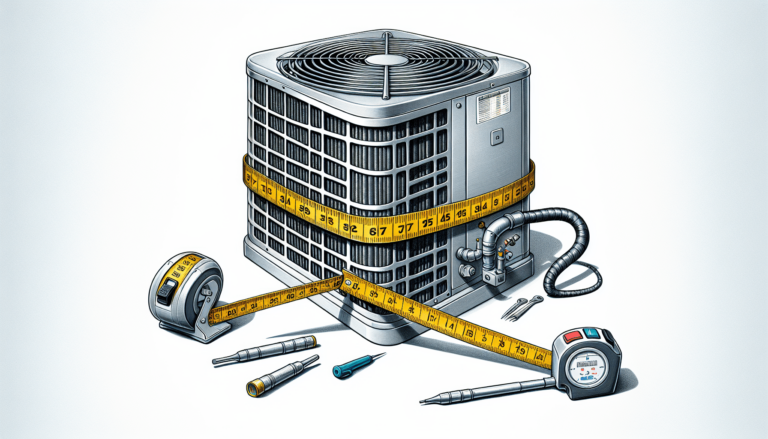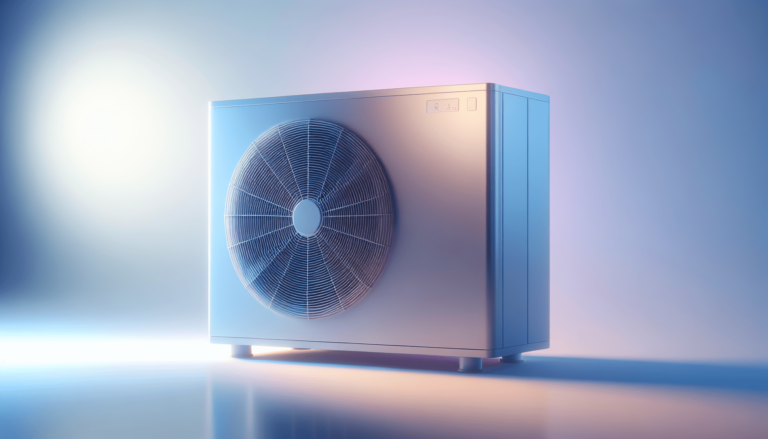

HVAC Services
Get Professional Repairs From The Area's Trusted HVAC Technicians. Ask About Our Services! We Offer Professional Heating & Cooling System Repairs And Guarantee Long-Lasting Results.
Got Question? Call us: (850) 678-2665Financing
The Role Of Humidity In HVAC Performance
Discover how humidity impacts HVAC performance. Understand the balance for optimal comfort, energy efficiency, and system longevity. Learn more with Tempacure HVAC.

When it comes to the efficiency and effectiveness of your HVAC system, humidity plays a crucial yet often overlooked role. In “The Role Of Humidity In HVAC Performance,” you’ll explore how the right balance of moisture in the air can significantly impact your system’s ability to keep your home comfortable all year round. This article from Tempacure Heating and Air Conditioning delves into how excessive or insufficient humidity can strain your HVAC system, affect energy consumption, and even have implications for your health. So, whether you’re looking to cut down on energy bills or simply create a more comfortable living environment, understanding the interplay between humidity and HVAC performance is essential. For more information or personalized advice, you can reach out to Tempacure Heating and Air Conditioning at 325 Cedar Ave S, Suite B, Niceville, FL 32578, or visit their website at https://tempacurehvac.com/.
Have you ever wondered why your home sometimes feels like a swamp, even with the air conditioning running? Or why your furnace can create a desert-like environment in the dead of winter? Yep, that’s right—the culprit here is humidity! It plays a sneaky but significant role in how your HVAC (Heating, Ventilation, and Air Conditioning) system performs. So, grab a cup of coffee, put your feet up, and let’s dig into the fascinating world of humidity and HVAC systems. Trust me; it’s more interesting than it sounds!
Understanding Humidity: The Basics
What is Humidity?
Humidity is the amount of moisture in the air. You probably knew that much, but did you know there are different types of humidity? The most commonly talked about are relative humidity (RH) and absolute humidity.
Absolute Humidity is the total water vapor present in a given volume of air.
Relative Humidity is more interesting because it affects your comfort. It’s the ratio of the current absolute humidity to the highest possible absolute humidity, which depends on the current air temperature.
Why Humidity Matters
Humidity affects more than just your hair and how frizzy it gets in the summer. It can influence your overall comfort, your health, and even the structural integrity of your home. Humidity levels can have a direct impact on your HVAC system’s efficiency and lifespan, too.
The Role of Humidity in HVAC Performance
How Humidity Affects Heating
Winter comes along, you crank up the heat, and you sit back thinking you’ll be warm and toasty. But wait! All of a sudden, your skin feels like parchment paper, and your nasal passages resemble the Sahara Desert. Your HVAC system not only heats the air in your home but can also strip it of moisture, leading to a low relative humidity level.
Low humidity can affect heating efficiency in several ways:
-
Enhanced Perception of Cold: When the air is dry, it feels colder. The same temperature in your home can feel substantially different if the humidity drops.
-
Increased Heat Loss: Dry air can lead to structural issues like gaps in window seals or wooden floors, causing heat to escape more easily.
How Humidity Affects Cooling
When summer rolls around, you just want to kick back and enjoy the refreshing cool air. But high humidity can throw a wrench in the works.
High humidity can have multiple negative effects:
-
Decreased Comfort: Even if your thermostat reads a cool 72°F, high humidity can make it feel much warmer.
-
Lower Efficiency: Your A/C has to work harder to remove moisture from the air, leading to higher energy consumption.
Ideal Humidity Levels
So, what’s the magic number for humidity in your home? It turns out people generally feel comfortable when indoor relative humidity levels are between 30% and 50%.
| Season | Ideal Humidity Level |
|---|---|
| Summer | 40%-50% |
| Winter | 30%-40% |
Keeping your home within these ranges can optimize both comfort and HVAC performance.

Humidity Control Solutions
Dehumidifiers
Dehumidifiers are your best friend during those muggy summer months. These devices remove moisture from the air, reducing the strain on your air conditioner. There are portable units and whole-house dehumidifiers that integrate with your HVAC system.
Humidifiers
On the flip side, come winter, you might want to invest in a humidifier. These devices add moisture to the air, making it easier to maintain a comfortable humidity level. You can also choose between portable units and whole-house systems.
HVAC System Integration
The folks at Tempacure Heating and Air Conditioning can help you integrate humidity control into your existing HVAC system. Modern HVAC systems often come with built-in humidifiers and dehumidifiers or can be easily upgraded to include these features.
Benefits of Proper Humidity Control
Enhanced Comfort
When you maintain the ideal humidity levels, your home becomes a sanctuary of comfort. You’ll sleep better, breathe easier, and enjoy a more balanced indoor climate year-round.
Improved Health
Proper humidity levels can help reduce allergens, discourage mold growth, and even lessen the severity of colds and respiratory issues. Your nasal passages and skin will thank you!
Energy Efficiency
When your HVAC system doesn’t have to work overtime to manage humidity, it uses less energy. This results in lower utility bills and a smaller carbon footprint. Win-win!
Longevity of HVAC System
An HVAC system that’s not overburdened with moisture issues is likely to have a longer lifespan. This means fewer repairs and replacements over the years.

Common Misconceptions About Humidity and HVAC
More Cooling Power Means Better Humidity Control
Think cranking up your A/C to the max will solve your humidity problems? Think again. While it’s true that air conditioning removes some moisture, it’s not designed specifically for dehumidification. You need a dehumidifier for that.
Humidity Isn’t an Issue in Winter
Winter air is typically drier, but indoor humidity can still become uncomfortably low. Low humidity in winter can make your home feel colder than it actually is, prompting you to crank up the heat and waste energy.
Open Windows Are a Good Solution
While opening a window might offer temporary relief, it’s not a permanent solution for humidity problems. Outdoor air can carry contaminants and may undermine your HVAC system’s efficiency.
Real-World Examples
Case Study: Summer in Miami
Imagine you’re a homeowner in Miami. The summers are hot and humid, making your air conditioning system work extra hard. By installing a whole-house dehumidifier, your HVAC system can focus on cooling, not dehumidifying. The result? Lower energy bills and a more comfortable home.
Case Study: Winter in Chicago
Now, imagine you’ve moved to Chicago. The winters are brutally cold, and the air inside becomes as dry as a bone. You install a humidifier to work in tandem with your furnace, maintaining a comfortable indoor environment and preventing your skin from turning into lizard scales.
How Tempacure Can Help
Tempacure Heating and Air Conditioning specializes in optimizing your home’s HVAC performance. With a range of humidity control solutions, they can tailor a system to meet your specific needs.
Contact Information:
Tempacure Heating and Air Conditioning
325 Cedar Ave S Suite B
Niceville, FL 32578
(850) 678-2665
Don’t hesitate to give them a call to make your home a comfortable oasis regardless of the season.
Final Thoughts
Humidity plays a crucial role in the performance of your HVAC system. By controlling the humidity levels in your home, you can enhance comfort, improve health, increase energy efficiency, and extend the life of your HVAC system. And who wouldn’t want that? So next time you’re feeling a little too sticky or a bit too parched, think about the humidity levels in your home and how your HVAC system can help.
If you have any questions or need professional guidance, don’t hesitate to reach out to experts like Tempacure Heating and Air Conditioning. Happy comfortable living, folks!







